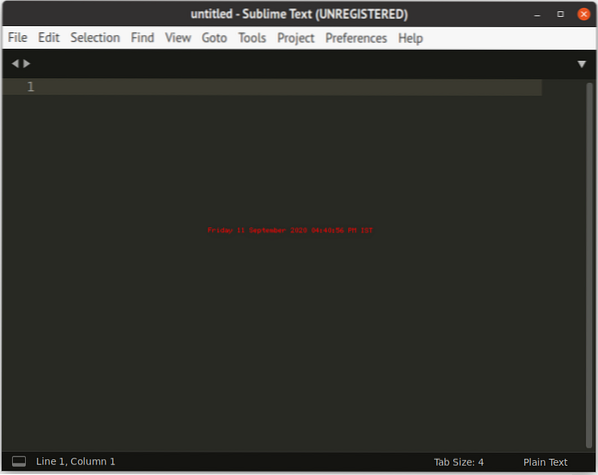Upgrade your Kernel
Outdated kernel is always prone to several network and privilege escalation attacks. So you can update your kernel using apt in Debian or yum in Fedora.
$ sudo apt-get update$ sudo apt-get dist-upgrade
Disabling Root Cron Jobs
Cron jobs running by root or high privilege account can be used as a way to gain high privileges by attackers. You can see running cron jobs by
$ ls /etc/cron*Strict Firewall Rules
You should block any unnecessary inbound or outbound connection on uncommon ports. You can update your firewalls rules by using iptables. Iptables is a very flexible and easy to use utility used to block or allow incoming or outgoing traffic. To install, write
$ sudo apt-get install iptablesHere's an example to block incoming on FTP port using iptables
$ iptables -A INPUT -p tcp --dport ftp -j DROPDisable unnecessary Services
Stop any unwanted services and daemons running on your system. You can list running services using following commands.
[email protected]:~$ service --status-all[ + ] acpid
[ - ] alsa-utils
[ - ] anacron
[ + ] apache-htcacheclean
[ + ] apache2
[ + ] apparmor
[ + ] apport
[ + ] avahi-daemon
[ + ] binfmt-support
[ + ] bluetooth
[ - ] cgroupfs-mount
… snip…
OR using the following command
$ chkconfig --list | grep '3:on'To stop a service, type
$ sudo service [SERVICE_NAME] stopOR
$ sudo systemctl stop [SERVICE_NAME]Check for Backdoors and Rootkits
Utilities like rkhunter and chkrootkit can be used to detect known and unknown backdoors and rootkits. They verify installed packages and configurations to verify system's security. To install write,
[email protected]:~$ sudo apt-get install rkhunter -yTo scan your system, type
[email protected]:~$ sudo rkhunter --check[ Rootkit Hunter version 1.4.6 ]
Checking system commands…
Performing 'strings' command checks
Checking 'strings' command [ OK ]
Performing 'shared libraries' checks
Checking for preloading variables [ None found ]
Checking for preloaded libraries [ None found ]
Checking LD_LIBRARY_PATH variable [ Not found ]
Performing file properties checks
Checking for prerequisites [ OK ]
/usr/sbin/adduser [ OK ]
/usr/sbin/chroot [ OK ]
… snip…
Check Listening Ports
You should check for listening ports that aren't used and disable them. To check for open ports, write.
[email protected]:~$ sudo netstat -ulpntActive Internet connections (only servers)
Proto Recv-Q Send-Q Local Address Foreign Address State PID/Program name
tcp 0 0 127.0.0.1:6379 0.0.0.0:* LISTEN 2136/redis-server 1
tcp 0 0 0.0.0.0:111 0.0.0.0:* LISTEN 1273/rpcbind
tcp 0 0 127.0.0.1:5939 0.0.0.0:* LISTEN 2989/teamviewerd
tcp 0 0 127.0.0.53:53 0.0.0.0:* LISTEN 1287/systemd-resolv
tcp 0 0 0.0.0.0:22 0.0.0.0:* LISTEN 1939/sshd
tcp 0 0 127.0.0.1:631 0.0.0.0:* LISTEN 20042/cupsd
tcp 0 0 127.0.0.1:5432 0.0.0.0:* LISTEN 1887/postgres
tcp 0 0 0.0.0.0:25 0.0.0.0:* LISTEN 31259/master
… snip…
Use an IDS (Intrusion Testing System)
Use an IDS to check network logs and to prevent any malicious activities. There's an open source IDS Snort available for Linux. You can install it by,
$ wget https://www.snort.org/downloads/snort/daq-2.0.6.tar.gz$ wget https://www.snort.org/downloads/snort/snort-2.9.12.tar.gz
$ tar xvzf daq-2.0.6.tar.gz
$ cd daq-2.0.6
$ ./configure && make && sudo make install
$ tar xvzf snort-2.9.12.tar.gz
$ cd snort-2.9.12
$ ./configure --enable-sourcefire && make && sudo make install
To monitor network traffic, type
[email protected]:~$ sudo snortRunning in packet dump mode
--== Initializing Snort ==--
Initializing Output Plugins!
pcap DAQ configured to passive.
Acquiring network traffic from "tun0".
Decoding Raw IP4
--== Initialization Complete ==--
… snip…
Disable Logging as Root
Root acts as a user with full privileges, it has power to do anything with the system. Instead, you should enforce using sudo to run administrative commands.
Remove no owner Files
Files owned by no user or group can be security threat. You should search for these files and remove them or assign them a proper user a group. To search for these files, type
$ find /dir -xdev \( -nouser -o -nogroup \) -printUse SSH and sFTP
For file transferring and remote administration, use SSH and sFTP instead of telnet and other insecure, open and unencrypted protocols. To install, type
$ sudo apt-get install vsftpd -y$ sudo apt-get install openssh-server -y
Monitor Logs
Install and setup a log analyzer utility to check system logs and event data regularly to prevent any suspicious activity. Type
$ sudo apt-get install -y loganalyzerUninstall unused Softwares
Install softwares as minimum as possible to maintain small attack surface. The more softwares you have, the more chances of attacks you have. So remove any unneeded software from your system. To see installed packages, write
$ dpkg --list$ dpkg --info
$ apt-get list [PACKAGE_NAME]
To remove a package
$ sudo apt-get remove [PACKAGE_NAME] -y$ sudo apt-get clean
Conlusion
Linux server security hardening is very important for enterprises and businesses. Its a difficult and tiresome task for System Administrators. Some processes can be automated by some automated utilities like SELinux and other similar softwares. Also, keeping minimus softwares and disabling unused services and ports reduces the attack surface.
 Phenquestions
Phenquestions


